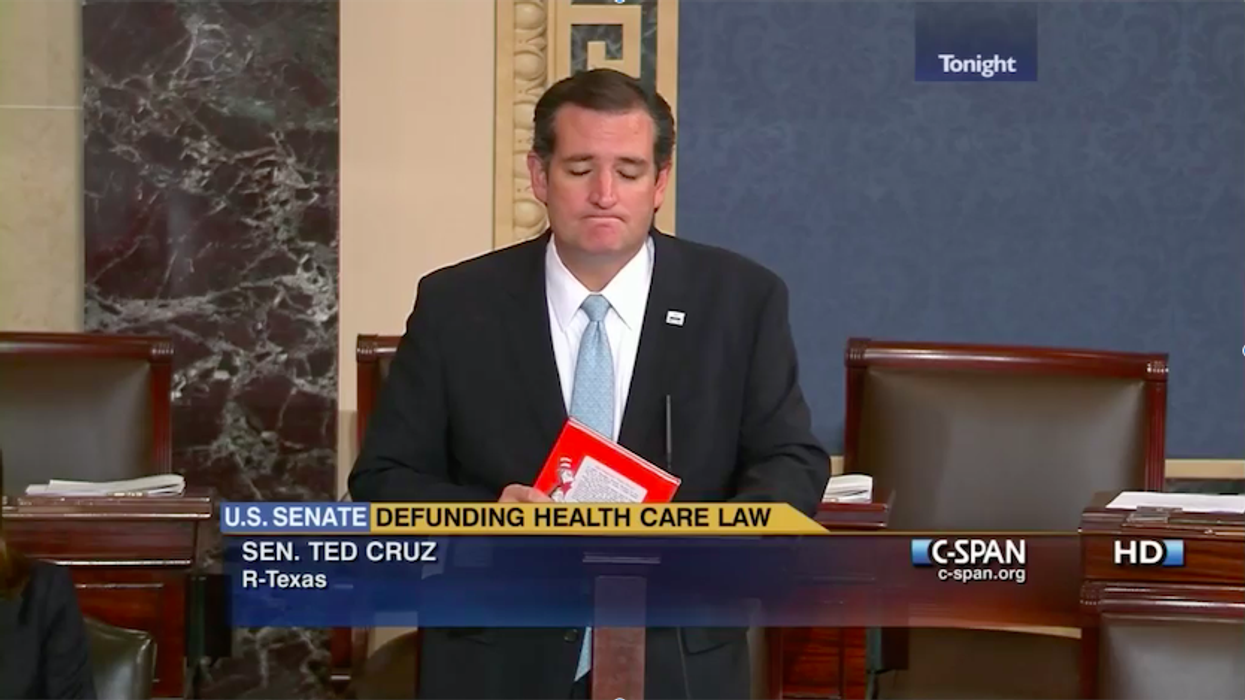Televising every moment of the Senate's proceedings is a wonderful monument to government transparency, one that brings corruption-scrubbing sunshine to the self-proclaimed world's greatest deliberative body. Right?
Perhaps, but it's more complicated than that. Newly published research concludes gavel-to-gavel coverage of Congress has reduced substantive debate, heightened partisanship and increased the amount of time members spend on posturing and self-promotion.
The report is the second in recent days detailing what's underpinning the dysfunction of the Capitol, at a time when legislative branch weakness is widely viewed among the main threats to democracy. In the other, former members of Congress painted a dire picture of their former workplace, saying it is ill-equipped to rally even in emergencies such as the current coronavirus pandemic and economic collapse.
The TV study, from Cornell University, provides a rare analytical attempt to address an issue that has been the subject of years of theoretical debate: Does televising government in action help or hurt the deliberative process, in the end aiding or interfering with the function of our democracy?
In an attempt to answer the question, law professor Edward Stiglitz and economics graduate student Aviv Caspi examined debate in the Senate from January 1983 through January 1989, a period that straddled the start of C-SPAN's coverage of the chamber in May 1986. (House proceedings went live seven years before.)
They examined about 300,000 speeches by senators during debates to see how much those statements were similar to the previous statement — and statements by senators of the same party and the other party. (No, they didn't read many millions of words; this work was automated.)
They then looked to see if the similarities in the rhetoric by members of the same party increased or decreased after the cameras were turned on.
What they were looking for was whether "herding" — in essence, agreeing with your kind — by Republicans and Democrats increased with television. The answer was a qualified yes.
The study also concluded this tendency to toe the party line became most pronounced the closer to Election Day.
The authors also attempted to look at the impact on the behavior of senators who represented more or less "discerning" constituents, using the percent of state populations with college degrees as the measure of discernment. What they found is that senators with the most educated constituents distanced themselves less in their speeches from members of the other party.
Another finding was that TV's arrival boosted the amount of Senate time spent in what's known as morning business — the parliamentary time when senators can address any topic they like. "Members likely favor this time because it allows them to posture before cameras — showing fidelity to party, or differentiating from members of the other party — essentially without constraint," the study said.
The authors also conclude that their work suggests the Supreme Court may be justified in resisting years of lobbying from good government groups and media organizations that say oral arguments should be televised.
For its own study, the Association of Former Members of Congress interviewed 31 of its newest members — a senator and 30 House members who left office in the previous two years — about the causes and possible solutions to congressional dysfunction. They will sound familiar to observers of Capitol Hill's slide into partisan gridlock.
The report says the constant need for members to return every weekend to their home districts to politic and raise money has given Democrats and Republicans alike fewer chances to form relationships that can result in working together on difficult issues.
Former members also report a tendency of party leadership to keep the two sides apart instead of promoting events that would build bipartisan trust.
The report calls for more members to participate in overseas trips where they have a chance to get to know each other and where party membership is less significant.
Also suggested are members visiting the districts of represented by the other party and conducting joint field hearings.
Finally, the report concludes that members need more time together away from the glare of the media and the public.
"To have all congressional business open at every step can sometimes diminish opportunities — and incentives — for the private interactions necessary for bipartisan and legislative success," the report concludes.




















